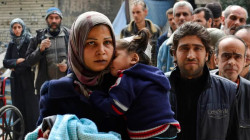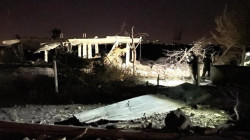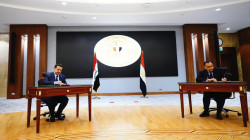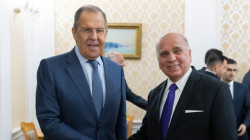Iraq’s stability under siege: Israeli threats spark Arab and regional support
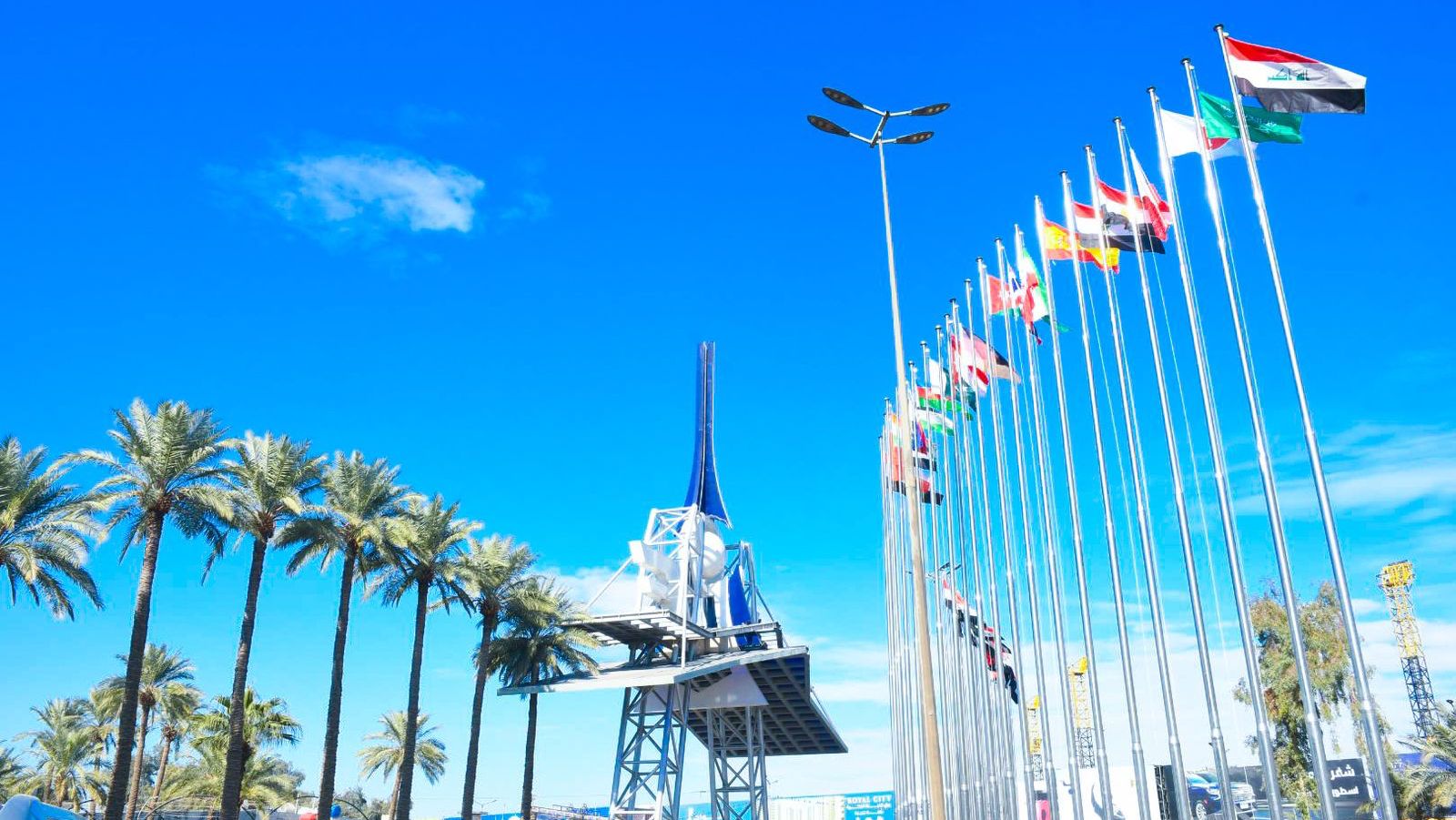
Shafaq News/ Iraq's stability stands as a cornerstone for Middle Eastern security, with international observers cautioning that any Israeli actions against the Iraqi state could spark a broader regional war. Amid these tensions, Iraq's growing Arab and global solidarity underscores its pivotal role in fostering balance and maintaining relations with all sides in an increasingly volatile region.
IRI Fights; Israel Threatens
The Iran-aligned Islamic Resistance in Iraq (IRI), a coalition of Iraqi armed groups, and part of the broader “Axis of Resistance” comprising groups from Lebanon, Syria, Iraq, and Yemen, has intensified its military operations since October 2023, citing support for the Palestinian resistance following Israel’s assault on the Gaza Strip. Initially targeting US military bases in Iraq and Syria, the group expanded its attacks to Israeli sites, including the Jordan Valley, Golan Heights, Haifa, and Tel Aviv. The attacks expanded significantly since last September when Israel started a war on Lebanon and engaged in daily military confrontations with Hezbollah.
In light of this, Israel raised the issue to the United Nations, with its foreign minister sending a letter warning Iraq.
Israeli Foreign Minister Gideon Sa'ar held the Iraqi government responsible for "everything happening on its territory," saying, "I sent a letter to the President of the UN Security Council, urging immediate action regarding the activities of Iran-backed militias in Iraq, which are using its territory to attack Israel."
The Israeli FM stressed that “Israel has the right to self-defense, as outlined in the UN Charter, to protect itself and its citizens,” urging the Security Council to act “swiftly” to ensure the Iraqi government meets its international obligations and halts these attacks on Israel.
In this context, the Israeli newspaper Maariv reported that Israel's plans regarding any escalation from Iraq involve “first targeting infrastructure and facilities, then conducting targeted assassinations of key figures in the armed factions.”
Iraq Takes Diplomatic Measures
The Iraqi Parliament considered the Israeli complaint, along with the diplomatic and media pressures on Baghdad and discussions of a potential Israeli military strike on Iraq, as “nothing but attempts to perpetuate killing and destruction in the region,” reiterating Iraq's commitment to supporting Gaza and Lebanon.
In turn, Iraqi Prime Minister Mohammed Shia al-Sudani dismissed Israel’s UN letter as a “pretext for aggression,” accusing Tel Aviv of attempting to escalate the war in the region. He reaffirmed that decisions of war and peace “rest solely with the Iraqi state,” emphasizing Iraq’s humanitarian support for Palestinians and Lebanese populations, as Israel has killed more than 3,500 in Lebanon and over 43,000 in Gaza, mostly women and children.
Al-Sudani also directed all security agencies to pursue “any military activities outside the state's control.” Among the directives was the reinforcement of Iraq's western borders through intensive activity, rapid deployment, and the development of necessary plans to ensure effective security depth.
Addressing Israeli statements, Iraqi government spokesperson Bassem Al-Awadi confirmed that “Israel has invoked Article 51 of the UN Charter, which justifies the use of force in self-defense, claiming Iraqi territory poses a threat and provides grounds for strikes against targets in Iraq.”
However, he confirmed that “the Iraqi government rejects any justification for attacks on its territory under any circumstances,” asserting that the country will respond “firmly” to such aggression.
He also reiterated Iraq's commitment to peaceful solutions for regional crises while maintaining that "the country would adopt a defensive stance if threatened."
Following the request of the Iraqi National Security Council, Iraq’s Ministry of Foreign Affairs (MoFA) sent official letters to the United Nations Security Council, the UN Secretary-General, the Arab League, and the Organization of Islamic Cooperation, in response to Israeli threats.
“Iraq is a pillar for stability in its regional and international surroundings, and is among the countries most committed to the principles of the United Nations Charter,” MoFA said in its letters, confirming that Israel’s recent communication to the Security Council forms “a systematic policy to create allegations and pretexts to expand the scope of conflict in the region.”
Another diplomatic measure was taken when the Iraqi government requested an emergency session of the Arab League Council at the permanent representative level to address Israeli threats.
The council responded to Iraq's request, affirming that it would convene an extraordinary session at the level of permanent representatives, chaired by Yemen, on Sunday, 24 November.
Ambassador Hossam Zaki, Assistant Secretary-General of the Arab League, assured, “The meeting will discuss the memorandum from the President of the United Nations Security Council regarding Israeli claims of increased frequency and intensity of attacks originating from Iraqi territory since last September, which aim to drag the region into a wider regional war.”
International Voices: Neighboring Countries Stand with Iraq
Turkish political analyst Jawad Gok expressed solid support for Iraq in an interview with Shafaq News Agency. "All neighboring countries, including Turkiye, stand with Iraq due to the strong relationship between the two nations." He warned that "targeting Iraq could ignite a war in the region…The entity [Israel] has no right to attack Iraq.”
“Turkiye will not allow Israeli aircraft to use its airspace for any potential strikes."
In a similar vein, Iranian political writer and researcher Jalal Cheraghi described to Shafaq News Agency Israeli threats against Iraq as an attempt to "escape forward” and “cover up failures” in Gaza and Lebanon.
"They want to get out of the predicament and cover up these defeats," he explained. Cheraghi noted that the purpose of the threats was primarily "for internal Israeli consumption," aiming to create a sense of achievement for the domestic front by making threats against Iraq's Islamic Resistance.
Cheraghi further outlined that the threats were designed to "sow division between the people, government, and resistance," applying pressure on the Iraqi government while provoking the Iraqi public against both their government and resistance forces.
He also suggested that these actions were aimed at sending messages to the United States and the incoming Trump administration, urging them to "exert more control over Iraq and confront the Axis of Resistance, along with those launching rockets and drones."
Moreover, Cheraghi emphasized the need for neighboring countries to adopt a "firm stance" against these threats, calling on Arab and Islamic nations to hold meetings to "denounce" them.
Arab Voices: Iraq is Peace Mediator
Jordan also expressed unwavering backing for Iraq's role in regional stability. In an interview with Shafaq News Agency, Hasan Al-Momani, Dean of the Prince Al Hussein Bin Abdullah II School of Political Science and International Studies, emphasized Iraq’s historical significance in the Arab world, stating, "Iraq has played a central role in Arab politics…It has restored its position within international politics in the Middle East, presenting itself in various roles, including as a peace mediator, as its stability contributes to the overall stability of the region."
"Iraq enjoys balanced relations with all Arab countries…If it faces an attack, Arab nations will fully stand in solidarity with it, including Jordan, which will be a major supporter and will mobilize its political and diplomatic resources in service of the country,” Al-Momani further noted.
Jordanian political analyst Hazem Ayyad, a researcher at the Umma Center for Studies, discussed the context surrounding recent Israeli threats, explaining, "Israeli threats came at the peak of the confrontation between Israel and Lebanon and during intense diplomatic efforts to seek a ceasefire agreement, coinciding with strikes inside Israeli territory."
"These threats are more of an attempt to pressure Iraq than actions likely to be carried out…Israel currently lacks the necessary resources and capabilities, diverted by its ongoing conflict in southern Lebanon and operations targeting factions within Syrian territory,” he elaborated.
The researcher concluded, "Thus, these threats align with American and European diplomatic efforts to end the war in southern Lebanon…Israel seeks to involve Iraq in the negotiations, and any potential strike would aim at pressuring Iraq to commit to a future ceasefire agreement."

